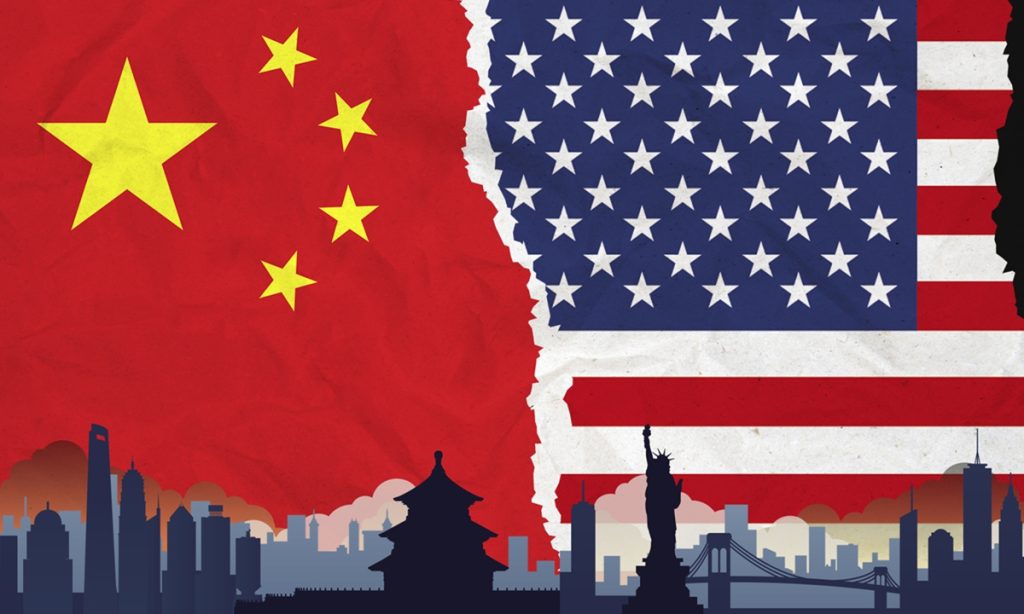China’s climate envoy to visit US, expected to ‘extend positive climate exchanges’ between two countries

China's special envoy for climate change Liu Zhenmin will travel to the US from May 7 to 16 for talks with his US counterpart. The first formal talks between climate envoys from both countries carry great significance as it is expected they can continue and extend the positive exchange between the two countries in addressing climate change, according to observers, while also warning that the coming US presidential election could cloud the future cooperation.
Liu will lead a delegation for talks with US Special Presidential Envoy for Climate John Podesta, the Ministry of Ecology and Environment said Tuesday.
The ministry said that Liu will exchange in-depth views on the "The Sunnylands Statement on Enhancing Cooperation to Address the Climate Crisis," which was issued by two countries in November last year; and other consensuses, as well as promote practical results in advancing China-US climate cooperation.
During this visit, Liu will also engage in discussions with relevant United Nations departments, as well as local governments and think tanks in the US, on topics related to climate change and other issues.
China will aim to extend cooperation on issues including energy, the circular economy and efforts to curb greenhouse gases beyond carbon dioxide, Liu told Bloomberg last month.
"Common ground means that both the US and China want to continue to lead this global process to respond to climate change," he said. "We have to cooperate as far as possible." The nations "also need to respect each other on all issues," according to Liu.
Energy transition, non-CO2 greenhouse emission such as methane, along with other issues are likely to top Liu's talks with Podesta, as those topics are of mutual concerns and energy transition is facing grave challenge amid complicated international situation, Ma Jun, director of the Beijing-based Institute of Public and Environmental Affairs, told the Global Times on Tuesday.
Ma believed trade issues will also top the list of discussion as the US has been using trade protectionism in key products and technologies for low-carbon transformation.
Podesta previously laid out the clearest declaration yet of the Biden administration's willingness to upend global trading rules — which the US fostered — to achieve its twin objectives of limiting carbon emissions and Chinese dominance of key industries, Bloomberg reported.
Liu and Podesta, both appointed to their roles in January, have spoken virtually and met in person briefly at the Petersburg Climate Dialogue in Berlin in April.
The strong personal connection between their predecessors Xie Zhenhua and John Kerry has kept climate talks between China and US alive even when bilateral relations spiraled to a low point, experts said.
The first formal talks between two climate envoys carry great significance as it is hoped they can continue and extend the positive exchange on climate issues between China and US, Ma said, noting that the strong bond doesn't come easy, and it needs time to establish the mutual trust.
Yet there's also concern that the coming US presidential election could cloud future cooperation. Speaking with Bloomberg, Liu said "I definitely hope that the American people will support the government to stay in the climate change process, stay in the Paris Agreement, even if Trump wins the next election…Not to repeat the mistake that they made during his last administration."
Ma said that US' withdrawal from the Paris Agreement another time will not only disrupt climate collaboration between Beijing and Washington; it is also likely to greatly set back global effort in tackling global warming. The uncertainty, however, highlighted the importance of dual-track communication between two countries, which comprises both exchange between central government level and sub-national, and non-governmental cooperation, according to Ma.
California Governor Gavin Newsom paid a visit to China in November last year. In a press release issued addressing his visit, Newsom's office said his trip prioritized three goals -- advancing climate action and cooperation, promoting economic development and tourism, and strengthening cultural ties.
On his trip, California signed five Memorandums of Understanding (MOU) with China's National Development and Reform Commission, the provinces of Guangdong and Jiangsu, and the municipalities of Beijing and Shanghai, according to the release.
"These MOUs advance California and China's work on climate policy and help set the stage for national discussions and partnerships," the release read.